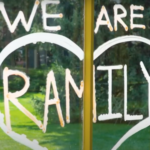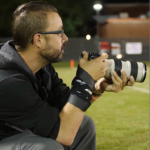By Angela Hayes, Ph.D.
There is one very important aspect of resilience that most of us rarely, if ever think about. And it is this: It’s usually not the event or adversity itself that causes us to be stressed or upset, it’s our interpretation of the event. It’s almost always about the stories we tell ourselves about what happened, our own unique interpretation. Beliefs matter because they shape the quality and intensity of your feelings and influence how you behave as a result. This is important, because resilient people are able to regulate their emotions and control their reactions so that they respond in the best way to any given situation. The goal isn’t to be in a great mood all the time. The goal is for our emotions and behaviors be productive, appropriate responses to the facts of the situation, instead of knee-jerk reactions to whatever beliefs happen to be rolling through our heads.
Learning Your ABCs
An easy way to think of it is the ABCs. A stands for the adversity you experience. Adversities are events that lead to our reactions. They can be big, like losing a job or small like missing a minor deadline or being late for a meeting. Most of us think of adversity as leading directly to emotional and behavioral consequences, to what we feel and do in response to the event. It’s like it goes from A to C. Adversity to Consequences. When something good happens, we experience positive emotions and when something bad happens we experience negative emotions. It seems logical, but it’s not accurate. It’s not the event itself that causes emotions and behaviors, it’s our thoughts and beliefs about what just happened that causes our emotions and behaviors. It’s the story we tell ourselves about what just happened. Let’s look at an example that has happened in countless households during the pandemic. In our boredom, many of us have tried out new dishes, cooking methods and so on. Let’s say you have never made a soufflé so you find a reasonably easy-looking recipe in a magazine and decide you will surprise your family with this fancy dish at dinner tonight. You follow the directions exactly and it comes out completely flat. One person might think “of course it’s flat. What was I thinking? I care barely pull off a decent grilled cheese sandwich. Why even try. I’m a terrible cook.” Another might get angry at the editors of the magazine “who obviously don’t even try out the recipes that they print. Don’t they realize the kind of stress that people are under right now?” Another person might think “A fancy pancake! The kids will love it. We’ll have a good laugh about this at dinner.” Each of those stories that are told, will result in very different emotions, reactions and possibly actions.
The Power of Our Thoughts/Beliefs
Most people will tell me that they can’t control what they think. Yes, you can. And exerting this control will make an unbelievable amount of difference in your level of resilience. People can have vastly different responses to the same incident. Some people would not see what happened as an incident at all, or might not even notice it. So let’s look at another quick example. Let’s think about how two different people might react to getting cut off in traffic. One might honk their horn, race after the driver that just cut them off, yell at them even though the other person can’t hear them, might use a gesture that communicates their meaning loud and clear, and so on. They might be angry about it for hours afterward, recounting the story to several other people and in general feel like that person ruined their day. Is that true? Is the other person responsible for ruining their day? So another person might get cut off in traffic and barely think about it, unless it almost causes an accident, in which case their fight or flight response is likely to kick in. Then they see that the accident didn’t happen, they drive on, they let it go and don’t think about it again. Let’s look at it from yet another lens. Let’s say that you were cut off in traffic and you somehow knew that the woman who cut you off is trying to get to the hospital as soon as she can because her toddler is in his car seat in the back and is choking on something and can barely breathe. He’s starting to turn blue. She’s less than a mile from the hospital and she’s just praying that she can get to the emergency room in time. If you would normally get angry about being cut off, would you be angry about being cut off for this reason? Right. You have control over how you interpret a situation. In the case of getting cut off, you can decide that the person probably has a really good reason for driving erratically, or that they are just a bad driver and you hope they will be able to stay safe, or will maybe invest in some driving lessons. And then let it go. Letting things like that go greatly increases resilience.
Putting It All Together
Think of a recent adversity that you don’t think you handled well. Describe in your head or jot down what happened as objectively as possible, as if it were being captured by a video camera. Then think about how you reacted to the event, both your emotions and behaviors. Then figure out the B. What beliefs or thoughts did you have that led to your feelings and actions? Try hard to think about your thoughts as you actually thought them, rather than a sanitized version. “Oh, I felt a slightly miffed when Penelope kept bringing everyone’s attention back to her during my b-day celebration…” No. Your actual thoughts. There is a learning curve here. It takes practice, but I promise you it’s worth the effort.
Of course there are situations where our thoughts and beliefs don’t really matter because the events are so severe that our reactions are driven by the event itself, like the loss of a loved one or other tragedies. In these cases the emotions and actions are from the tragedy itself, not our interpretation of it. But later on, how quickly we do or don’t bounce back, to the extent that we can, will be dependent on the stories we keep telling ourselves about the tragedy.

ANGELA HAYES serves as the Associate Director of Alumni and Online Career Engagement. Prior to coming to CSU, she worked as the Assistant Director of Alumni and Graduate Student Career Services at Kansas State University. She has a B.S. in psychology, an M.S. in industrial/organizational psychology and a Ph.D. in professional coaching and human development. She’s a nationally Board Certified Coach and a nationally Certified Health and Wellness Coach.
She has a passion for helping others to see their lives as full of possibilities and un-tapped potential. She views changes/transitions (both planned and unplanned) as opportunities for individuals to discover and plan out what they really want from their careers and lives.


































































